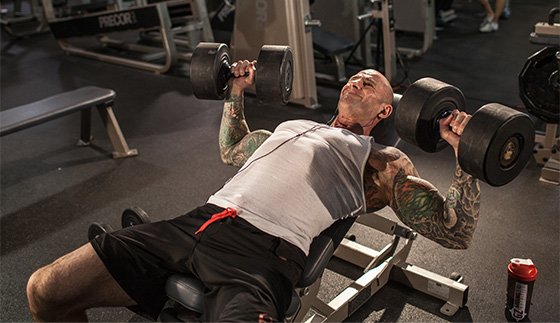Q
I keep seeing the ingredient "betaine" listed in pre-workouts. Is this just a typo of "beta-alanine," or is it something useful on its own?
Your confusion ends here! They may look alike, but make no mistake: Beta-alanine and betaine (pronounced "BEET-uh-een") both sound and work very differently. The former is a beta amino acid that helps raise muscle carnosine level, delaying muscle fatigue. The latter is also an amino acid, but it works its magic in different ways, primarily through boosting muscle protein synthesis in the body.
They have one thing in common, though: I've been telling people to take both for a long time! Betaine—or trimethylglycine, as it is technically known—is not a new supplement by any means, but older research focused largely on its potential to reduce risk of heart disease. Only more recently have researchers realized the extent of the benefits it can offer athletes looking to boost muscle strength, power, and mass.
Betaine for Alpha Performance
One of the first studies to report impressive gains in strength and power with betaine supplementation came from my old lab at the University of Connecticut in 2010.1 Since then, a number of other studies have also concluded that betaine can, in fact, boost strength and power.2,3,4 But the latest study, performed at the College of Springfield in Massachusetts, is particularly relevant for bodybuilders.
Researchers had weight-trained males follow an undulating periodized weight-training program for six weeks.5 One group supplemented with 1.25 grams of betaine twice per day, and the other group supplemented with a placebo twice per day. They reported in a 2013 issue of "The Journal of The International Society of Sports Nutrition" that the subjects supplementing with betaine increased muscle mass by 4 pounds and arm size by 10 percent, while they decreased body fat by 7 percent. On the other side, the placebo group experienced no increase in muscle mass or arm size and no body fat loss.

Take a look at the results again. Those kinds of gains are impressive in just six weeks, particularly alongside that type of fat loss. So how did it work? This likely happens through betaine's function in the body as a "methyl donor." When it transfers a methyl group to the amino acid homocysteine, the result is the methionine, which plays an important role in muscle protein synthesis. The existing research has consistently shown that betaine has the potential to boost muscle protein synthesis—and that means more growth, and more effective training.
How do I take it?
If you've been following my work over the last few years, you may have heard me recommend supplementing with betaine twice each day. This latest research only reinforces that conclusion. I suggest you take about 1.5-2 g of betaine before workouts and another 1.5-2 g after workouts. Consider elevating your stack to the next level with betaine!
References
- Lee E.C., et al. Ergogenic effects of betaine supplementation on strength and power performance. J Int Soc Sports Nutr. 2010 Jul 19; 7: 27.
- Trepanowski, J. F, et al. The effects of chronic betaine supplementation on exercise performance, skeletal muscle oxygen saturation and associated biochemical parameters in resistance trained men. J Strength Cond Res. 2011 Dec; 25(12): 3461-71
- Pryor, J. L., et al. Effect of betaine supplementation on cycling sprint performance. J Int Soc Sports Nutr. 2012 Apr 3; 9(1): 12.
- Apicella, J. M., et al. Betaine supplementation enhances anabolic endocrine and Akt signaling in response to acute bouts of exercise. Eur J Appl Physiol. 2013 Mar; 113(3): 793-802.
- Cholewa, J. M., et al. Effects of betaine on body composition, performance, and homocysteine thiolactone. J Int Soc Sports Nutr. 2013 Aug 22; 10(1): 39.


